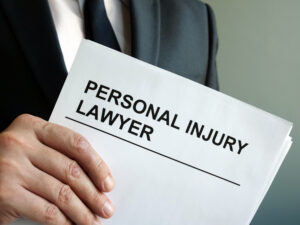Is Mediation Legally Binding in Personal Injury Cases?
You have probably heard of mediation in the context of divorce. The separating spouses sit down with a professional mediator who works to guide both sides to a mutually acceptable resolution.
But what about other legal cases, like car accidents, slips and falls, or nursing home injuries? Do these sorts of claims use mediation? Is mediation legally binding in personal injury cases?
In this post, an experienced injury lawyer in Wichita, KS, answers common questions about mediation in personal injury claims, including how the process works, what the benefits are, and whether the agreements are legally binding.
What Is Personal Injury Mediation?
In personal injury cases, both sides (such as an insurance company and the injured party) often try to reach a settlement agreement instead of going to court. If they can’t do so on their own, they may choose to work with a meditator.
Mediators are neutral professionals who often have experience in the legal field. This gives them insight into how a judge or jury would react in a courtroom. For mediation to have a higher chance of success, the parties should agree on a mediator they respect and trust.
How Does Personal Injury Mediation Work?
Typically, personal injury mediation follows the steps below:
- All parties sign a confidentiality agreement.
- Both sides make opening statements before the mediator.
- The mediator consults with both sides privately.
- An agreement is reached — or the mediation process fails.
Even if mediation fails, it doesn’t mean the process is worthless. In many cases, both sides discover new information they can then use for further negotiations.
What Are the Benefits of Personal Injury Mediation?
Mediation offers a host of benefits, including the following:
- It is more cooperative. Rather than an adversarial trial where a judge imposes a ruling, mediation allows both parties to work together to resolve their problems in a way that meets their needs.
- It is confidential. If you go to trial, court documents become a matter of public record.
- It is typically successful. Most mediations end in a settlement agreement.
- It is often less expensive. Unlike many court cases, mediation cases may take days or weeks rather than months or years.
Is Mediation Legally Binding in Kansas Personal Injury Cases?
Now, to the question that brought you here: “Is mediation legally binding in personal injury cases?” The answer is that mediation in and of itself isn’t usually binding unless you sign a contract.
Unlike an arbitrator in binding arbitration, mediators don’t make decisions or rulings that both sides must follow. If you cannot settle during mediation, you still have the right to go to court.
However, once you voluntarily reach a mediation agreement and both sides sign it, that agreement is a legally binding contract.
Contact Us for Personal Injury Legal Assistance in Kansas
Now that we’ve answered the question, “Is mediation legally binding in personal injury cases?” perhaps you’re ready to try mediation. At Larry Wall Trial Law, we offer alternative dispute resolution (ADR) services, including professional personal injury mediation.
Contact us today to learn more about the benefits of mediation or to schedule a free consultation.




